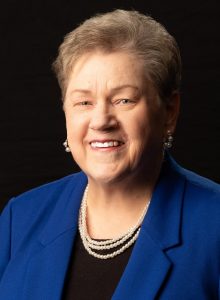Reminder: PBC March 2026 Quarterly Provider Forum for SCOs March 3
The Office of Developmental Programs (ODP) has shared this important reminder for the provider forum for support provider preparedness for Support Coordination Organizations (SCO). ODP will review the quarterly forums and discuss data presented to the Information Sharing and Advisory Committee (ISAC) Provider Performance Review Subcommittee. ODP will also review the emerging themes or trends with the implementation of performance-based contracting.
Audience:
Supports Coordination Organization (SCO)
Date and Time:
March 3, 2026
1:00 pm – 2:30 pm
Reminder: PBC March 2026 Quarterly Provider Forum for Residential Providers March 11
The Office of Developmental Programs (ODP) has shared this important reminder for the Performance-Based Contracting (PBC) Provider Forum for Residential Providers. This forum is provided to support provider preparedness. ODP will review the quarterly forums and discuss data presented to the Information Sharing and Advisory Committee (ISAC) Provider Performance Review Subcommittee. ODP will also review the emerging themes or trends with the implementation of performance-based contracting.
Audience:
Residential Providers
Date and Time:
March 11, 2026
2:00 pm – 3:30 pm
ODP Shares Updates for MyTranscript Reports
The Office of Developmental Programs (ODP) has shared ODPANN 26-027. This announcement shares that an update has been made to Part 1 and Part 2 of the MyTranscript reports and is now available to access from the MyTranscript link in the navigation bar. Users will now be able to export the MyTranscript report as a PDF. Please visit here to view instructions on how to print the MyTranscript reports.
View the announcement for more details.
ODP Shares Vol. 3.1 of CI Program Spotlight Quarterly Newsletter
The Office of Developmental Programs (ODP) has shared ODPANN 26-026. This communication announces the release of a new issue of the quarterly newsletter. The newly released CI Program Spotlight, Volume 3, Issue 1, may be found on the MyODP website by following the link on the CI Program home page.
Please view the announcement for more details.
RCPA and RCPA Partner Clinically AI to Hold Webinar on AI Learning Collaboratives March 10
Request for Your Support for the RCPA PAC
The Rehabilitation and Community Providers Association Political Action Committee (RCPA PAC) is asking members to consider making a personal contribution to the PAC. With these donations, we have been successful in supporting legislative leadership who understand the severe challenges facing many of our providers. These representatives are willing to stand up for our issues as we fight to move Pennsylvania forward.
We urge you to view our 2026 Legislative & Administrative Priorities to see how RCPA is working, and will continue to work, for you. We are able to achieve these goals thanks to our members’ dedication and contributions.
Make an online contribution and advocate for yourself today. While the request is voluntary, we encourage you to make a contribution of $100, $250, $350, $500, or more to the RCPA PAC. If you are interested, you can also consider making a recurring monthly donation.
If you have any questions regarding the RCPA PAC or making a donation, please contact Jack Phillips, Director, Government Affairs.
Justice in Aging Shares Fact Sheet on Impact of HR1 on Older Immigrants’ Access to Health Care

Family Peer Support Organization Allegheny Family Network Welcomes New CEO, John Eliyas
FOR IMMEDIATE RELEASE
Allegheny Family Network Celebrates the Retirement of CEO Ruth Fox, Welcomes John Eliyas as Incoming Chief Executive Officer
Pittsburgh, PA — [February 9, 2026] — After more than four decades of dedicated service to children, families, and communities, Ruth Fox, Chief Executive Officer of Allegheny Family Network (AFN), has announced her retirement, closing a transformative chapter in the organization’s history. AFN also proudly announces the appointment of John J. Eliyas, MA, CPG, as its new Chief Executive Officer, ushering in the next era of leadership and growth.
Welcoming a Seasoned Behavioral Health Leader
As AFN looks to the future, the Board of Directors has appointed John J. Eliyas, MA, CPG, a respected behavioral health executive with more than 30 years of experience across mental health, substance use, forensic, and community-based systems.
John, of Penn Township, Pa., most recently served as Executive Director of Behavioral Health at Merakey, where he oversaw residential, outpatient, forensic, and community programming across Western Pennsylvania. Throughout his career, he has built multidisciplinary teams, expanded services, increased revenue, and strengthened system partnerships.
His leadership philosophy centers on collaboration, frontline engagement, and empowering staff and families — values closely aligned with AFN’s family-run model.
“I am honored to step into this role and build on the incredible foundation Ruth and the AFN team have created,” said Eliyas. “Family voice and peer support are critical to strong communities, and I look forward to partnering with families, staff, and stakeholders to expand AFN’s impact across Pennsylvania.”
John shares “lived experience” as a parent and caregiver, personally and professionally, across a variety of systems.
Honoring a Visionary Leader
Ruth Fox has devoted her career to uplifting families and strengthening mental health systems across Western Pa. Beginning her professional journey as a nurse and community volunteer, Ruth transitioned into behavioral health leadership, where she discovered her calling: ensuring families have a voice and a choice in their care.
Ruth, of Cheswick, Pa., began her position as Executive Director in 2008. Under her leadership:
- Budget growth from $250,000 to $6.1 million
- Staff expansion from 5 to 56 team members
- Service reach from 30 families per month to more than 467 families monthly
- Launch of the family-run statewide organization, the PA Parent and Family Alliance
- Innovative partnerships with family peer support and crisis response systems
Her leadership story is deeply personal as well as professional. Inspired by her own family’s lived experience navigating mental health challenges, Ruth built AFN around compassion, resilience, and the belief that every family deserves support, dignity, and hope. Ruth’s work has empowered thousands of caregivers and families over her tenure.
“Leading Allegheny Family Network has been one of the greatest privileges of my life,” said Fox. “My wish is that the organization continues to grow, and continues to help families who are working hard so that their children can succeed.”
A Strong Future Ahead
AFN’s Board of Directors shared that this transition reflects continuity and growth.
“Ruth’s legacy is woven into the heart of our organization,” said Lisa Stefanko, Board Chair. “John brings the experience, integrity, and vision needed to carry that mission forward. Together, this moment represents both celebration and opportunity.”
Allegheny Family Network remains committed to strengthening families, elevating lived experience, and ensuring that families have access to meaningful support and advocacy.
About Allegheny Family Network
Allegheny Family Network is the largest family-run nonprofit organization dedicated to supporting families raising children and loved ones with mental health or emotional challenges in Pennsylvania. Through peer support, advocacy, education, and system partnership, AFN empowers families to build resilience, connection, and hope. AFN is based in Pittsburgh, with a satellite office in Natrona Heights, Allegheny County. It services almost 500 families monthly with Comprehensive Family Peer Support Services, Support Groups, Education Programs and Partnerships with child and family-serving systems. AFN has a staff comprised of parents with lived experience of raising children with mental health, behavioral health or trauma, from the Executive Team to the frontline staff.
Media Contact:
Misty Chybrzynski Woody
Chief Strategy & Development Officer
Allegheny Family Network
Office / Cell: 412-438-6130
PA Family Network Announces March 2026 Workshops
Please share these important workshops and support groups with your networks! Register for upcoming events at PA Family Network’s website.
Good Life Group, Support Groups
- Caregiver Support Group: Wednesday, March 4, and Tuesday, March 17
- Sibling Good Life Group: Monday, March 23
LifeCourse Workshops
- Peace of Mind Long Term Planning: Thursday, March 26
- Using the LifeCourse to Plan and Problem Solve Part 1 & 2: Thursday, March 5, and Thursday, March 12
- Transitions Through the LifeSpan for Siblings: Monday, March 16
Waiver Workshops
- Waiver Basics Part 1 & 2: Wednesday, March 11, and Wednesday, March 18
- Advanced Waiver Basics Part 1 & 2: Friday, March 20, and Friday, March 27



















